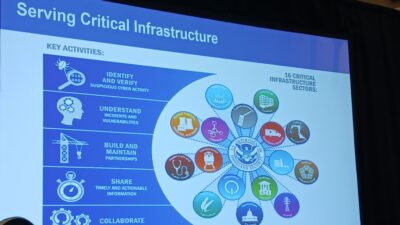The global economy is likely heading toward a mild recession in 2024 with a quick recovery, and manufacturers can position themselves in front of these challenges by taking charge; automation is part of the answer.

Learning Objectives
- Offset a mile recession in 2024 and depression in 2030 in part with manufacturing automation..
- Be prepared: Companies have the opportunity to pull ahead and improve automation and efficiency in operations and reduce supply chain bottlenecks.
- Demographics, deficit spending and a weaker dollar will lead to the 2030 Depression; automation will provide stability in the no-growth time of the early 2030s.
Manufacturing economy insights
- The U.S. economy is expected to have a mild recession in 2024, but it will soon recover after.
- Manufacturers can prepare for the future and take charge of the situation rather than letting things happen to them; manufacturing automation is part of the preparation.
- The global economy, due to aging demographics, deficit spending and the value of the dollar eroding, is projected to end up in another depression in the 2030s.
The global economy has endured many headwinds in the last few years due to the COVID-19 pandemic changing the way we work and operate. They have been challenging, and the next several years aren’t expected to be any easier, said Alan Beaulieu, principal and president of ITR Economics, at his presentation “Calculate to Win” at the A3 Business Forum in Orlando.
A recession, he said, is very likely going to happen in 2024 due to rising interest rates imposed by the Federal Reserve to stave off inflation. It’s a measure, he said, that is unnecessary, but will likely be mild. Manufacturers will be better-positioned than other industries in general due to high demand for products. Automation will help.

Improve manufacturing automation, address labor issues
In general, businesses remain profitable and liquidity is high, Beaulieu said, and consumer financial health is good with incomes rising overall. The labor market, though, will remain tight and the weakening economic conditions in the years ahead mean employees will become more likely to stay.
Beaulieu said the issue is exacerbated because the government is trying to balance the labor market, which he believes is a mistake.
“The one thing they cannot do is force more people into the labor market because they are not enough people.”
Even with all that, Beaulieu said companies have the opportunity to pull ahead and improve automation and efficiency in their operations and reduce supply chain bottlenecks that have become an issue. The worst things companies can do is not be ready or think everything is going well.
“As good as you’re feeling right now, you should be prepared,” he said. “When you act on feelings, you aren’t prepared. You don’t want to act early, but you definitely don’t want to act too late.”

Manufacturers need to prepare for 2030
Beaulieu said the recession that is likely to happen in 2023 and 2024 is a prelude to what will be another Great Depression that is projected to happen in 2030. The reasons for this depression, he said, are three-fold:
-
Demographics. The world is aging and the added costs for them through social security and other programs put added weight on federal governments.
-
Deficit spending. Too much debt, he said, puts added pressure on the bond market, which could lose confidence. That, in turn, increases the amount of money governments have to spend.
-
The dollar’s value weakening. The dollar is considered the most valuable and stable currency. Its weakening will increase inflation and thus reduce the amount governments and companies can spend as a result.
He added the second Great Depression will differ from the 1930s because there is a much stronger safety net. Employment will be high, and the housing market will be hammered. Companies will maintain throughout, but won’t grow. This will be a new norm for several years in the 2030s. Manufacturers, thanks to technology advances in automation, can be a model of stability in the tough times to come in the short- and long-term in ways they couldn’t be during the Great Recession in the late 2000s.
“The world is going to need you for decades. You’re the heroes,” Beaulieu said. “Who is the most needed people? You. Who are the ones who are going to keep things running? The more you do that, the more you can help your country grow. That’s an advantage. You’re in the right industry,” he said.
Chris Vavra, web content manager, CFE Media and Technology, [email protected].
Keywords: Manufacturing economics, automation helps
ONLINE
https://www.controleng.com/articles/robotics-motion-control-machine-vision-ai/
https://www.controleng.com/articles/annual-electromechanical-expo-theme-focused-on-industry-growth/
https://www.controleng.com/articles/use-the-positive-effects-of-automation-to-plan-ahead/
CONSIDER THIS
Are you investing in the future as predicted by experts?



